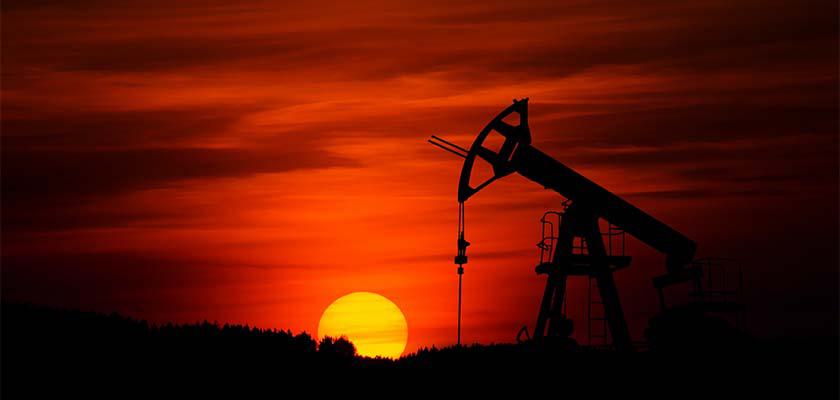Gas prices continue to rise in Alabama, with no end in sight.
The price of gas has been steadily on the rise for the past year, even more significantly when tensions between Russia and Ukraine began increasing. Since Russia invaded Ukraine on Feb. 24, prices have skyrocketed.
With gasoline already costing nearly a dollar more per gallon than this time last year, combined with record-breaking inflation, Alabamians are worried about how they will be affected at the pump. Complaints on social media about the increase in gas prices increase from day to day, with some claiming that their local station had increased prices by 20 to 30 cents overnight. Many posted pictures of their local fuel station charging nearly four dollars a gallon for regular and over four dollars for diesel and premium.
According to the U.S Energy Information Administration (EIA), Russia made up 7% of America’s oil imports. That percentage increased to 7.9% in 2022, making Russia the third-largest oil supplier to the U.S.
According to Bart Fletcher, President and Association Executive with the Petroleum & Convenience Marketers of Alabama (P&CMA), the availability of oil is, without question, the most significant contributor to the current soaring gas prices.
Despite several complicated logistical processes, the price of crude oil remains the number-one factor in determining the cost of gasoline.
Oil is collected worldwide through drilling into the earth and pumping oil through underground oil reservoirs. Fracking, a method that extracts oil from subterranean rocks and shale, is also used.
Once the oil has been extracted, it is then transported to a refining facility, where the raw crude oil is turned into gasoline and diesel fuel. From the refinery, it is delivered to terminals via ship or pipeline. Distributors purchase the refined fuels from terminals and deliver the fuel to various filling stations.
Fletcher said that the global fuel market is affected by the Russia-Ukraine conflict. Many nations purchase their fuel from Russia, and with growing sanctions against Russia, those countries must find somewhere else to buy their oil, which increases the global market price.
According to Fletcher, most gasoline in Alabama makes its way to the state through pipelines, with a small percentage being brought in through coastal shipyards and waterborne terminals.
Fletcher further stated that there had not been a decrease in the availability or supply of gasoline from refineries. Besides a recent small leak in a pipeline, the supply of fuel has not diminished at all.
Fletcher stated that, when a commodity, such as oil, has a demand that exceeds the supply, the price must increase.
“We have not seen any significant issues as a result of the current situation in Ukraine,” Fletcher said. “We have seen a significant increase in the wholesale price of gasoline over the last week, and that is on top of a price increase at the wholesale level that has been ongoing for a number of months, just not quite as rapidly as we’ve seen with the situation in Ukraine. The situation in Ukraine has caused a market that was increasing to become a market that is rapidly increasing in terms of wholesale pricing, and that has resulted in a rapid increase at the retail level that you’ve seen across the state. It’s not a supply issue; it’s a wholesale cost issue; it’s the retail market reacting to the change in the wholesale cost.”
According to the EIA, in 2020, on average, 43% of gasoline costs were due to the price of crude oil, 22% were state and federal taxes, and 35% were due to refining, marketing, and distribution costs.
With all of the variables being accounted for, it is still the prerogative of the company providing the gas or diesel to set the price. Despite the essential nature of fuel in our society, the market still functions freely with no federal caps limiting the price a fuel provider can place on their product.
“The market dictates the price,” Fletcher said. “If I am a Chevron distributor, and I get my Chevron gasoline for my retail convenience stores at the Chevron terminal in Birmingham, Chevron sets my daily wholesale price.”
Without a full stand-down from Russia, Fletcher gives a grim prediction for the future of gas prices in Alabama and the U.S.
“Barring any change in the [Biden] administration’s policy regarding production and exploration in the United States and barring any significant change with the situation in Ukraine, we may be in for an extended period of higher prices than what we have been accustomed to over the past several years,” Fletcher said.
“You saw the other day in the State of the Union, the president said that he was going to release 30 million barrels from the Strategic Petroleum Reserve; that’s equal to about two-and-a-half-days’ worth of the United States’ demand,” Fletcher said. “So, that was really just window dressing, that really didn’t do anything at all.
Fletcher was also critical of this administration’s energy policies, saying that the wholesale price of fuel had been steadily growing since Biden took office. The halting of the Keystone pipeline and the shutdown of drilling and exploration of oil on federal lands were among the disagreements Fletcher expressed with Biden’s energy policy.
To connect with the author of this story, or to comment, email craig.monger@1819news.com










